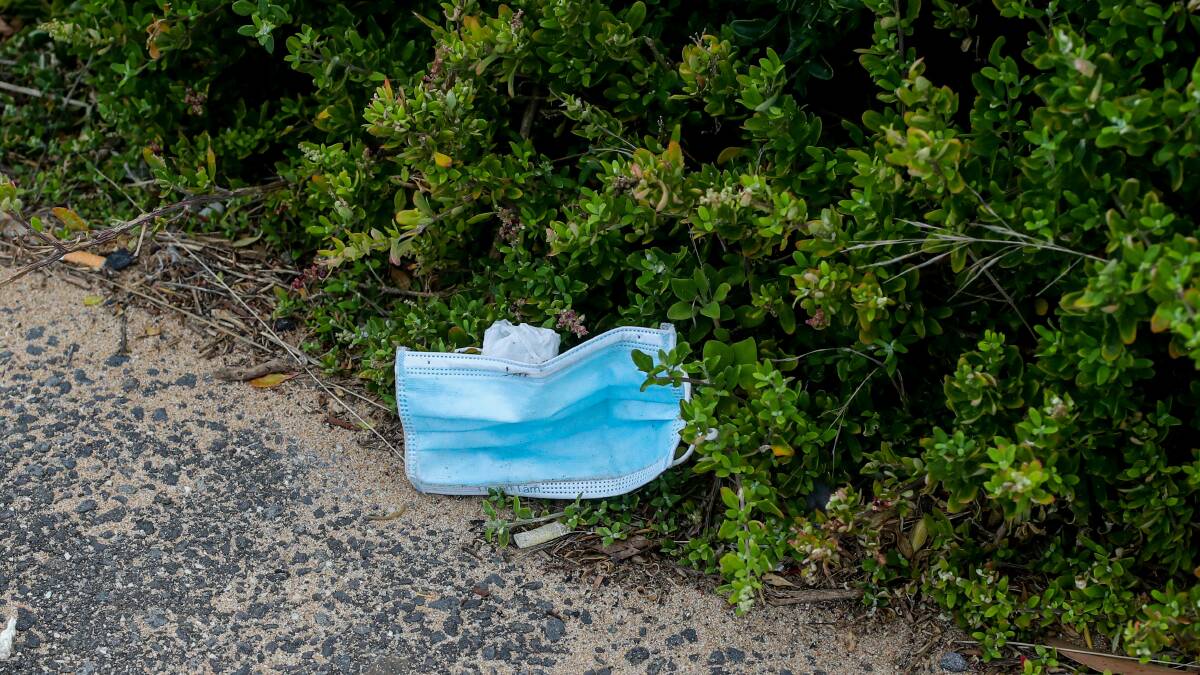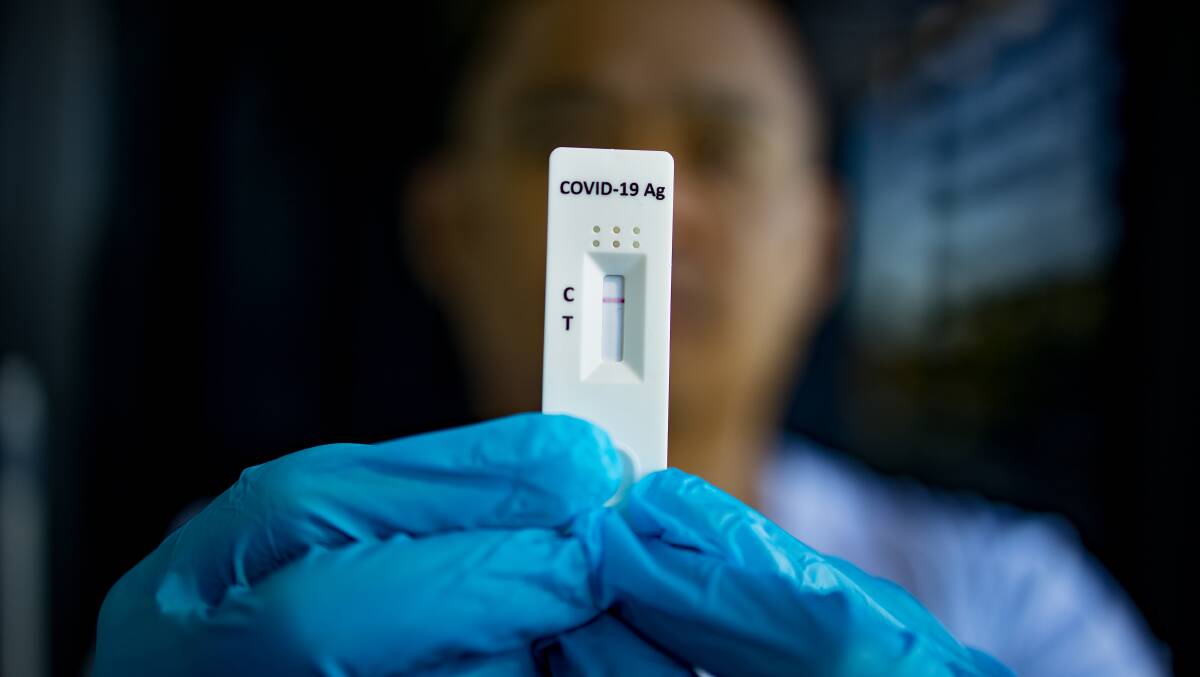As another silly season ends, I can't help a feeling of déjà vu.
Subscribe now for unlimited access.
or signup to continue reading
Widespread COVID transmission, supply chain issues and an increasing number of deaths make this Christmas look just like the last, when we were told Omicron would be mild, something we had to "push through" with "personal responsibility".
Is this what the holiday season will look like from now on? If this is living with COVID, why did we sign up for it with so little apparent resistance?
When Anthony Albanese took on the role of prime minister last May, he gained the opportunity to redefine COVID leadership and ensure the safety of all Australians.
A recent ANU study has found that the Morrison government's handling of the pandemic played a major role in the Coalition's electoral downfall - only 30 per cent of Australians approved of his "let it rip" policies.
Yet Albanese has so far shown a similar laissez-faire response.
The Albanese government and national cabinet have abandoned public health interventions such as testing and tracing, quarantine and isolation, border controls, public messaging, financial support and mask mandates, despite rampant transmission and rising deaths.
At the peak of the Christmas wave, national cabinet released a Strategic Framework for Transitioning COVID-19 Measures to move to a "new normal" that breaks away from "COVID exceptionalism".

Its guiding principles are to "move from public health orders to [a] work health and safety and individual behaviour change paradigm," from mandates to "strong recommendations".
Yet, as AMA president Steve Robson has argued, "easing restrictions or abandoning other protections signals ... that things are over, and that's not correct".
COVID will now be managed like any other respiratory illness, despite being far more infectious and virulent.
After barely six months with this government, we exceeded the total number of deaths that occurred under Morrison in the first two years of the pandemic.
Yet Albanese finished the year with his highest voter approval rating since taking office.
This situation starkly contrasts with public opinion in 2020 and 2021, when most overwhelmingly supported state-mandated protections.
One poll, for example, found that 61 per cent of respondents said that fewer than 100 deaths per year would be acceptable in a "living with COVID" model. In 2022, there were on average 40.6 COVID deaths per day. How, then, can we explain the transformation of Australians' COVID outlook?
In the 1930s, Italian philosopher Antonio Gramsci proposed that those who hold power could ensure that their preferred worldview would be seen as natural, inevitable and beneficial to all by creating and maintaining what he termed cultural hegemony.
They achieved this not by force, but by coercive persuasion. That is, by gaining popular acceptance, even approval of their moral and political values.
Living with COVID has now become hegemonic, in Gramsci's terms, not just in Australia but in many countries around the world. Since the Great Barrington Declaration of October 2020, we have seen the normalisation of widespread infection.
There has been a push by the media, certain experts, and politicians to "return to normal" and live with mounting infection, disability and death.
This is most evident in the myths about the virus adopted by what Gramsci called the "organs of public opinion" - the mainstream media. These include: "COVID is mild", "schools are safe", "children don't transmit the virus", "COVID is mild in children", "hybrid immunity", "it's endemic", "it's just like the flu", "we're all going to get COVID" and, more recently, "the pandemic is over".
These myths, unsupported by scientific evidence, downplay the severity of the virus and create a false narrative that health consequences are minor, if not trivial.
As such, we perceive the pandemic as less risky and any protective measure as an overreaction.
Hegemony is frequently achieved by adapting pre-existing beliefs or prejudices.
The idea of "pandemic fatigue", for example - the exhaustion felt after months of sustained and unresolved adversity and disruptions, resulting in a lowered risk perception - has been cited by our leaders to remove mandated protections.
National cabinet's recently published Strategic Framework plans to mitigate this fatigue by generating "resilience and capacity building [to reduce] reliance on government interventions".

Our governments also actively suppress information relating to COVID.
Formerly daily announcements of new cases and deaths are now weekly, while access to free PCR tests has also been wound back. Instead, we're encouraged to use the less affordable and less accurate rapid antigen tests, and the mandate to report a positive result itself has ended in most places, aside from the ACT.
The reported case numbers are therefore unreliable, presenting a rosier picture of the pandemic.
These numbers have been used by state and federal governments alike to further reduce protective measures under the guise of "returning to normal".
We are presented with a false reality to ease our (justified) anxiety and to lower our personal risk perception and expectations of the state's role in protecting us from harm, while those who continue to avoid COVID are pathologised.
Australians have now "consented" to the idea of living with COVID. Widespread infection is regarded as inevitable, a necessary sacrifice, and less deadly.
Most Australians have been infected, including up to 90 per cent of children, and we increasingly see a return to normal as advantageous.
READ MORE:
However, there is mounting evidence that letting it rip will pose an accumulative burden on society, the economy, and individual health. Studies estimate up to 40 per cent of those infected develop "long-COVID" while those who escape this fate remain at high risk of strokes, heart attacks, embolisms, or damage to other organs.
Challenging the idea that COVID is "mild" in children, studies have found that one infection increases their risk of type 1 diabetes, blood clots, heart problems and kidney failure. If COVID is allowed to spread unchecked, we will only see greater morbidity, mortality and erosion of our public health systems.
Living (and dying) with COVID does not benefit us. It is only advantageous to those who depend on a speedy return to a pre-pandemic capitalist status quo.
It is also politically beneficial as it shifts the responsibility from state to individual, precipitating what Chris Wallace has called "the biggest victory for neoliberal public health policy in memory". This is the age of COVID hegemony.
- Dr Blair Williams is a lecturer in Australian politics at Monash University and a visiting fellow at the Australian National University.

